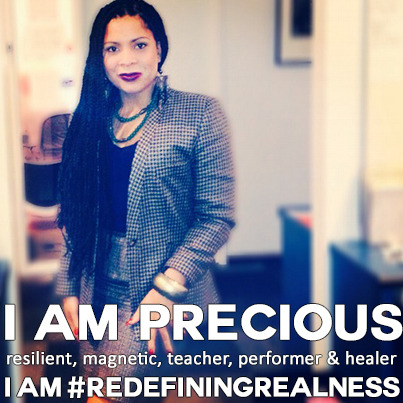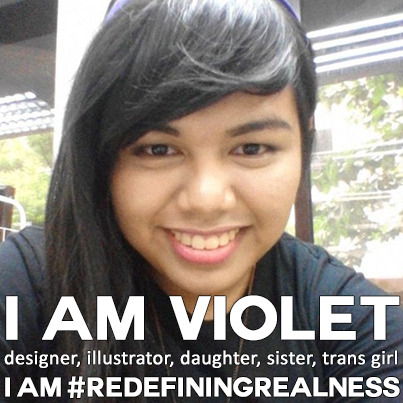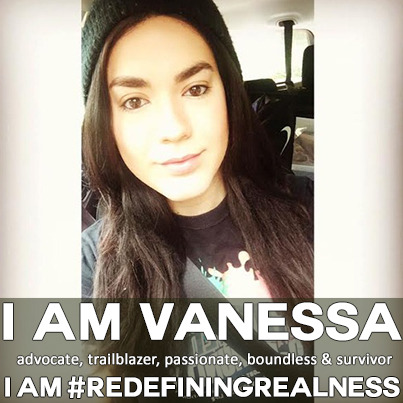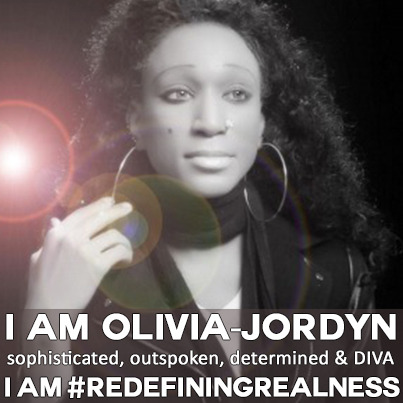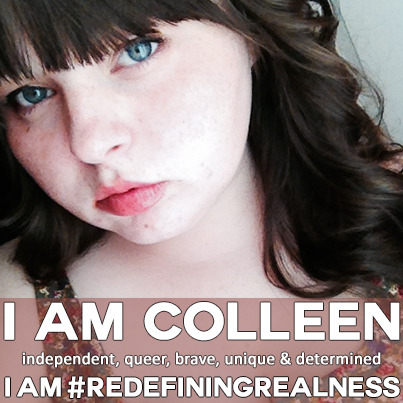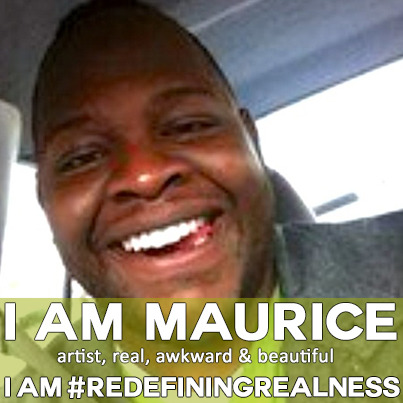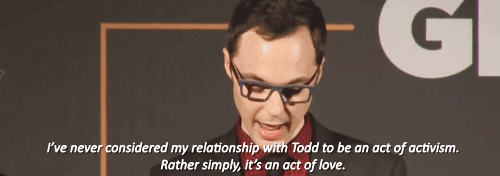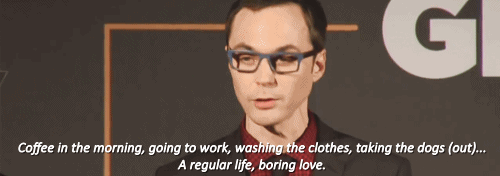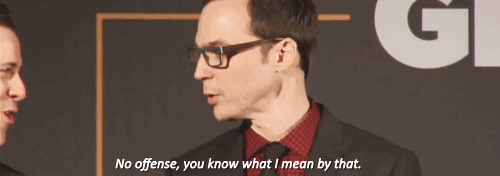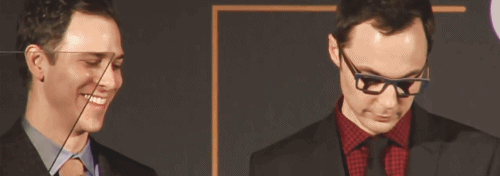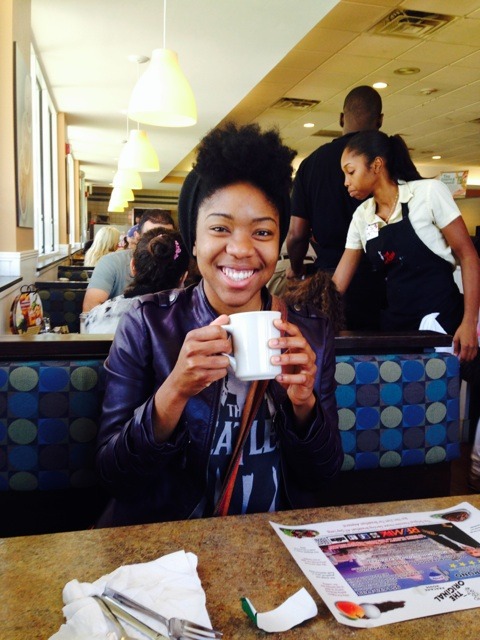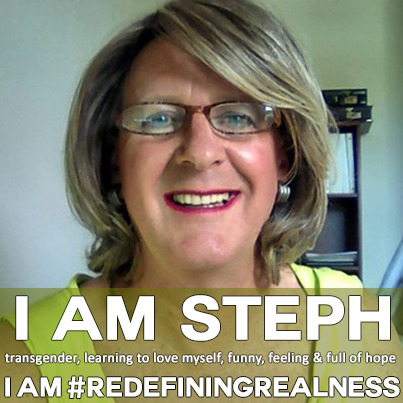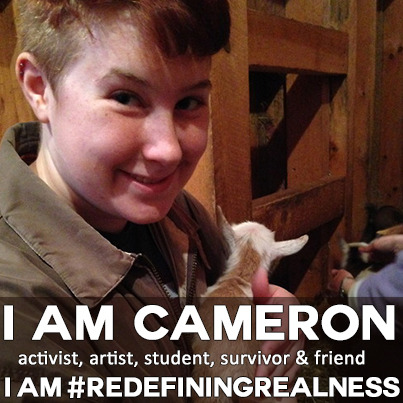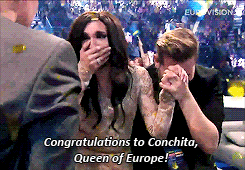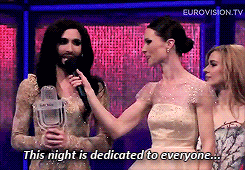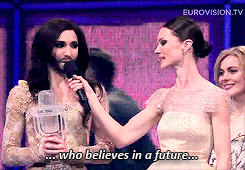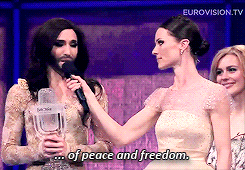How Are You #RedefiningRealness?
Growing up in Omaha, Nebraska, I was exposed from a very early age to the reality of loss and trauma, to the understanding that I was different, and to the beautiful insight that transformation is always inevitable.
I was adopted by my grandparents at the age of 5 under the name Nathaniel Paul Holbert Jr., and I remember the feelings I had in the courtroom on the day I legally changed my name to Nathaniel Paul Davis. It was exciting, and it felt right, but I also felt a deep sense of loss. I knew that in order for me to be adopted, I had to have been given up - abandoned.
My father had left my mother, and now my mother had left me. But from then on, I would be known as a Davis, and would no longer be attached to the legacy of my birth mother or father.
Even at that age, I began to understand the power that exists in a name.
Names speak to identity, to origin. Until I left behind the last name Holbert and the suffix Jr., there was still a part of me that was connected to my birth father, although I had never met him. Shortly after the adoption and name change were finalized though, I found out that my birth father had passed away from a seizure due to a gunshot wound to the head on Omaha’s north side. So, in an instant, that entire piece of my identity was fully and permanently cut off from me.
But I was not made less by the loss.
Instead, I was reborn into something new. Through what would be the first of many transitions, I was a Davis now. One of my first memories as a young Davis child was at school, when I was in kindergarten. I was in the morning class, and had left my bookbag in a cubby in my classroom that day. I went back that afternoon to pick it up, escorted by my grandmother, who was white, and my grandfather, who was black. All the white kids at Hartman Elementary went to school in the morning and all the black children went in the afternoon, so when I arrived to pick up my backpack I was met by a room of brown faces staring at me like I was out of place or unusual or wrong in some way. I saw them all staring at my grandparents, wondering, “What could Nathaniel be doing with a white woman and a black man together?” and “Why were they stepping foot into the afternoon session?”
I knew I was one of the only people of color who attended classes in the morning and I knew that my parents wanted me in that session for a reason, but I never really knew why until that moment. Somehow, this was the first moment that I realized I was not like the black kids OR the white kids. And although I didn’t have the word for what I was then, that day was the major establishing place in my understanding of race and my unique position as a biracial or TRANSracial person. It was one of the first moments I felt truly, profoundly different, and knew that I wasn’t “normal,” which now is a term I put in quotations.
Because who can say what normal is?
But really, I thought I was weird! I was shorter than everybody, I was left-handed, I had nappy curly hair, I was adopted, and my family was poor.
We lived in North Omaha, in a run down neighborhood off of 56th street, where public housing was the norm. I remember sharing in a sort of communal understanding that we were in a different world, a full level below the wealth and prosperity of those who lived in West Omaha, which at that time was anything west of 108th. One way or another though, my grandparents navigated the economic hardship of raising a household of seven and somehow kept the family afloat. It was the same for every family on the block I lived on, for the most part. One or both of the parents worked multiple jobs to put food on the table, and this meant many homes with kids taking care of themselves while parents worked the night shift. I remember being resentful that I didn’t have parents around when we came home from school to make dinner and care for us. My three sisters, my brother, and I did our best to take care of ourselves and occupy our time with games, bonding, and wreaking terror on the neighborhood to deal with the fact that our parents really weren’t present in our lives.
When I was in third grade, my sister started hanging around with twins who lived around the block from our house. Weekly, the girls would pick my sister up for a church that was blocks from where we lived. Victory Church was and still is located on the corner of 56th and Sorenson Parkway. Faithfully, the Shropshire family would pick my sister up for services and, eventually, I was fortunate enough to score an invitation to come along.
Victory Church was my first exposure to the very different experiences of what I considered to be a life of privilege. The pastor of the church at the time was white, and his beautiful wife would dance in the front of the service in the most beautiful flowing dresses, always addressing the congregation with the utmost sensitivity and reverence. She often cried when speaking.
I remember immediately identifying with her spirit and energy as she greeted members of the congregation. Her presence and leadership at functions in the church were always felt in her hugs and seen in the passion in her eyes. Not only was I enamored by the Pastor’s wife, but by the splendor of the facility. It had a full gym, a beautiful sanctuary, and a separate space for vending machines! Then, there were the activities I could partake in when my parents weren’t around. I was involved in Royal Rangers (their take on the Boy Scouts), sang in the choir, ministered in the drama group, volunteered weekly to clean up the church, participated in a bus outreach program that happened every Saturday, taught Sunday school, and even went on a mission trip to Mexico City.
Those were the first years I received training in the non-profit world, informally. It was a gift that came to me naturally. I came to this place where I started building relationships with individuals who actually made me feel valued. I didn’t feel that important at home or at school, because of the abusive situations that happened in both places. Growing up, I was continually locked in my room for long periods of time and always compared to my brother, the football player, who was also diagnosed with ADD. I never wanted to play any sport; I wanted to be the cheerleader and the person dressing all of the dolls. People at school would continually ask me if I was gay long before I knew what to say or what that even meant.
I had my first actual sexual experience around the eighth grade, with a boy from the neighborhood. We peed into the same bush together and both felt this urge to touch each other. However, I wouldn’t come to understand and identify with the term gay until my freshman year of high school, when I started at Northwest and met all of the people in the theatre and music departments.
I immediately joined the choir and auditioned for all of the musicals. While I had found my new homo glory, I was still having family difficulties at home. I lived with my grandfather, who took custody of me after a messy divorce with my grandmother. Then, the years of sexual abuse that occurred in our home came into the open. Later on, forgiving someone for sexually abusing me was to be one of the most liberating points in my life - having the realization that I was not a victim, but a survivor.
But around this time, I started getting bolder with my gender play. I would leave my house in the morning in tennis shoes and change into high heels on the way. (I mopped the shoes from my grandfather’s girlfriend.) I also became the first male-identified person in the history of the JROTC, in the state of Nebraska, to wear a dress to the military ball. At that time, no one would really say anything about how I was dressing, except my grandfather. I wore Hot Topic clothing that consisted of pleather pants, glitter in my hair, and tight shirts from Gadzooks - anything that made me stand out from the crowd.
Shortly after that, I became involved in a new youth group at Eagle’s Nest Worship Center, which invited me go to a Pentecostal youth conference in Aurora, Ill. I will never forget this moment in my entire life. I was called up by the youth pastor from the very back of the church in front of everyone; he then screamed into my ears a fierce exorcism:
“I bind the foul spirit of homosexuality out of you! You are a man, not a woman. You are a man!”
I woke up later on a kitchen floor with four women praying over me.
That would be the beginning of a process that went on to repeat itself for the next four years. I became more and more involved at Eagle’s Nest Worship Center, and tried tirelessly to throw myself into my faith as a “man of god” and trust that God would take this burden of my sexuality and gender expression away from me. All the while, everyone else around me seemed to think they knew what I was and and how they could fix me. I would go to these camps and retreats three times a year, and I would be instructed to repent and beg forgiveness. By the end, I would really feel like I’d been saved and changed, but then I would come home and realize, no, I still really want to kiss cute guys and wear high heels!
But I really fought it. I kept on fighting it because I wanted so badly to fit in and find my place in the church and to be a leader and build that community. I was mentored by several very masculine figures in the church during that time, following their instructions and constant corrections, as they told me to get my hair cut, to wear different shoes, to switch to my watch from one wrist to another.
Then, I started getting involved in the youth group. The youth pastor came to my school and told me this was a good place for me to step up, so I became the worship leader in the choir. Meanwhile, I was also going to the underage gay club, and dancing the night away on the weekends! So, while I was still navigating that space at Church, there was also a part of me that finally began to really feel like I didn’t care who knew anymore.
Eventually, there was some controversy, because some people from my high school started coming to the church and ratted me out for “not being a man of god” at school, where I was basically out. I was questioned, and this time I just didn’t have it in me to repent anymore. I was sick and tired of fighting, so I confirmed their suspicions. I was asked to turn in my tambourine and step down as worship leader.
—-
Shortly after that, I ended up going to live full-time with the family that eventually adopted me from my grandfather. They were foster parents who happened to know me from church and took an active interest in my development and safety as a young person. They insisted I switch to a school closer to their part of town, West Omaha - a predominantly white area. I was now living with a white family and going to school with mostly white kids, and it was a totally new life, a new start.
I had somehow thought that being adopted and living with another family was going to be some kind of grand solution. It ended up having its own problems and challenges, but it was a fresh start and it was the place where I cultivated a lot of my identity. I got back into music and theatre at my new school, and hanging out with the people there became a space where I finally felt the different aspects of myself start to unify. I had these opportunities to put on makeup, or wear high heeled boots to concerts or cast parties, and I was supported and encouraged by my friends. The safety and trust I had in them gave birth to the resilience and confidence that continues to serve me.
Finding a way to foster community in my theatre and gay worlds, while still making it to church in the morning, would teach me an early lesson about intersectionality and navigating spaces.
During high school, I went to a training retreat about social justice called Anytown, and learned about all the -isms of oppression. This was HUGE for me, because it was really one of the very first times in my life that I had the AHA moment, realizing that all of this systematic oppression was the problem - not me!
I learned about ableism, faithism, heterosexism. So many -isms! I realized how pervasive oppression really is, and made a choice to do my best not to be a part of it anymore. I had finally found a community in which to discuss the things I was curious about, and actually coexist in the world. The experiences I had there sustained me through high school and still means so much to me today.
One of the people who mentored me there was a girl named Nakiru, who told me how special I was, how much worth I had, and how great my potential was in the work of social justice. I finally felt that my voice had worth and power; that my story had value. I realized the systematic oppression of my Pentecostal faith was what had been the unraveling of my identity. I realized that systems should not control my life, but that finding my own happiness should dictate my path.
I later went back to Inclusivity as a camp counselor and participated in running other programs and leading workshops, using my voice and my story to help others. From there, I learned very quickly that I wanted to dedicate my life to this cause.
By my senior year of high school, the pastor at my church gave me a last chance ultimatum to repent. This time, I said, “Don’t worry, I’m not coming back!” I was determined to start a new independent life. I was going to be successful on my own, find my own voice, leave everything I ever knew, and begin my own story.
—-
I went on to college at Iowa Western, where I was cast in a play to act in drag, as the fairy nymph in “A Midsummer Night’s Dream.” This was significant, as it was a chance for me to explore my gender in a more legitimate sense, rather than just halfway dressing up at a cast party. Looking back, it’s funny that these strangers saw it in me long before I did. They were basically saying to me, “Don’t you know what you are?” I was still identifying as a gay man at the time. I didn’t have a label for liking “girl” stuff; no one had ever sat me down and explained what transgender meant.
One year in Iowa was enough, though, and I decided to move on to greener pastures and return to Nebraska. I transferred to UNL and Lincoln welcomed me with open arms. There was an LGBT group on campus, with people identifying as “queer,” which I had never even heard was a thing people did! I got in a fight the first week I heard someone say queer - I thought,”That’s a terrible word!” But there were some very smart and progressive queers on the campus.
At the gay bar downtown, I remember seeing a drag queen perform “I’m Every Woman.” It was one of the first times I was exposed to drag, and I remember thinking, “Ha, I can do THAT.” That night, the emcee announced a competition for first-time drag queens, called Beauty and Beast. My friends basically forced me to sign up, so I did.
Let me tell you, I certainly came bucking out the gate! I felt on fire - the glamor, the hair, the lights, the stage, the beauty. I fell in love with drag, and thus Precious Jewel was born.
Through performing in drag in Lincoln, I again had the experience of building community, of bringing people from my college to the gay club, when they would probably never have stepped foot in there otherwise. I was again finding intersectionality and community at every turn! I also took my first LGBT literature class, which introduced me to even more aspects of queer history and theory that I had been totally unaware of.
I never learned anything about Stonewall or any part of the history of the LGBT community until I took this LGBT class at 20 years old. It certainly sparked a trigger in me; I felt so strongly that I needed to be a part of creating space for queer people to live and thrive and come together.
After studying abroad in Paris and London, seeing all the art, Cabaret performers in the nude on a main stage, an Elphaba (from the musical Wicked) performed by a black woman, I had all this liberal amazing energy. I knew this other crazy world existed and I had to go somewhere bigger. I knew that I wanted to see more outside of Nebraska.
So, I left my full ride at UNL to go to Columbia College in Chicago, which is basically $100,000 a semester. During my first week there, my advisor asked me what I wanted to do, and I said “I want to perform at Chicago pride.” The very next year, I was on a float and performing on the main stage.
I continued to study queer history and theory, liberal education, and performance theory, all the while being a full-time entertainer working in the night clubs, trying to establish myself as a solo entertainer on the Boystown Strip. I was barely surviving. I wasn’t eating, I wasn’t grounded, and I wasn’t balanced. I was naive, but I was passionate, and I knew that one way or another, by God, I was going to make something of myself.
Even this radical liberal college didn’t know what to do with me, and sent me to do my senior internship at a queer theatre company, telling the youth director: “We have this kid we don’t really know what to do with.” I met her, she met me, and she said, “What’s the big confusion?” She FINALLY laid it out for me, “Girl, you’re a queer!”
It was a relief, but, at the same time, I still had these grand designs of being the queen, being famous, being the biggest and most glamorous showgirl to ever grace the stage. Eventually, this reached a pinnacle of frenzy, after I graduated and had the full freedom of summer to dive into the nightlife and all the sex, drugs and rock and roll.
I became lost in the illusion and fantasy of that world and I literally started coming unhinged.
I ended up realizing that I needed to come home; to come back to the prairie, grounded, connect back to nature, and to my origin. In a sense, I came back to be washed clean in the Platte River. Yes, it’s a muddy river, but that kind of reflects the mixed feelings I had about Nebraska. This will always be my home, the place where I can come back to be renewed, but, at the same time, this is also a place with many painful memories.
I did a series of photo shoots with my dear friend Kandice, exploring connections between my identity and the land, reborn and baptized as something other than a gay man in drag; as a queer creature of fluid gender. After the first shoot, I was in neither my disheveled confused boy persona nor my glossy big-hair campy drag costume. I was just me, a feminine but strong figure, a harlequin in a sense, embodying so many worlds and identities. I finally saw what I looked like when I was truly focused, energetically at peace, and connected to myself internally and externally. After my time back here, I knew I would be able to return to Chicago with a brand new clarity of purpose.
I had released Precious Jewel the Drag Queen, and had begun to discover Precious Davis, the trans evangelist, queer activist, and performance artist. But I wasn’t sure how and when to introduce my full-time transition into womanhood.
In my time as a showgirl working on the strip in Boystown, I had seen so many trans and gender variant youth on the street. Many of them were homeless youth of color. They would watch me run into my gigs and watch me perform from the window facing the street. Many nights after my performances, I would go out and love on these young people, and take pictures with them. I remembered the abandoned feeling I felt at a young age and did not wish that on anyone else.
Soon thereafter, a racist transphobic onslaught began occurring in Boystown. It was a crusade by all the gay white men to “rid the streets of crime,” which was blamed on the young people who partook in community-based services from the LGBT Resource Center located in the neighborhood. I wanted to bring my social justice background to bear on the debate, so I attended the local town hall meeting, but was shocked and disgusted by the unparalleled racism, greed, and classism spewing from the mouths of these white business owners. It was at that very moment that I knew it was time to use my power for building community and safe spaces to do more than bring patrons to a dollar drink night.
I wanted to help these young people. I wanted to help this community. I found a job working at the Center on Halsted, an LGBT youth resource center. My first week on the job, I was still hesitant to fully present my trans femme identity as Precious, wearing mostly boy clothes and my natural hair. One day, I said to a coworker, “I wish I could be here as Precious.” Then he said, “Girl you can!”
I realized this was my chance to finally be those women I had looked up to all my life: my teachers and preacher’s wives, striding the halls with a steady click of authority and glamor, in heels and skirts and all the trappings of my femme identity. Finally, I was fully embodied in my identity as a trans woman of color!
In my work at the center today, I facilitate groups with trans and gay youth of color, holding discussions on identity, healthy relationships, safe sex, and many other relevant topics. I coordinate community outreach to LGBT youth, organize HIV prevention efforts, and plan fabulous events for all the young people to enjoy and mingle with one another. I have gone on to speak at conferences and universities around the country, and have been so lucky to connect with and become eternal sisters with some of the other amazing trans women doing important work for our cause: Joanna Cifredo, Geena Rocero, Janet Mock, Zachary Drucker, Laverne Cox, Jen Richards, Cherno Biko, and Angelica Ross.
Now, this has all led me here today, to tell my story again, as a vibrant reminder that no matter what hardships you face, you can be resilient and you can achieve anything.
I am a woman of victory and I am manifesting greatness in my life.
I am Precious Davis and I am #RedefiningRealness.
I lived in fear and hiding all my life. I was afraid of rejection and disappointing my family…
But my dad, my mom, my brother, my sister…they loved me and accepted me all the way.
I am Violet.
I am a designer, illustrator, daughter, sister, and trans girl.
I Am #RedefiningRealness.
I am a PROUD mixed Cuban, Iranian, Jewish, Trans, and Queer Woman of Color, who was born in Manhattan and raised mostly in New Jersey. I began my journey five months ago and have been having both a liberating and lonely experience. I was asked to leave my home the day I came out to my parents and I have been financing my transition through my job and various other ways. I am hoping to begin the next phase of my journey and start hormones in September so that my outer self will begin to reflect my inner self.
In the short amount of time that I have begun my journey, I have become an advocate for my communities. In my university, I am currently the only out, open, visible, involved, and accessible trans woman at my university. There, I facilitate Gender and Sexuality trainings and workshops to faculty, staff, administrators, and students so that my community and the larger LGBTQIAP community can have a safer campus experience. I have also become one of the first ever open trans women to be accepted into the Women’s College at my university. In my community, I have been featured in several articles about my journey and my work and have appeared on local television shows, discussing trans* issues, and sharing my story. I hope to continue to devote my life to fighting for my community and to be an effective advocate.
I am Vanessa.
I am an advocate, trailblazer, passionate, boundless, and a survivor.
I am Madame Olivia-Jordyn: inspiring actress, model, wrestler, author, LGBTQI advocate, mental health advocate, motivational speaker, and inspiring humanitarian.
I am sophisticated, outspoken, determined, hell bent on being successful and…oh, I almost forgot, a DIVA.
I Am #RedefiningRealness.
My name is Colleen. I’m 17 and I’m constantly changing.
Growing up in a strict Christian home, down in the ever so accepting South, left very little room for me to learn about things like gender and sexuality. I always felt like something was wrong with me as a kid. I never really felt like a girl or boy; I never really felt an attraction to someone; I never really felt normal. I was confused most of my life, and I hated myself. I never understood who I was and became very depressed. Three years ago, I stumbled upon this eye-opening website, and, ever since, I have been constantly learning and growing.
Through the years, I have realized that I am gender fluid and demisexual. I know that, as I learn more, I will probably discover a sexuality that defines me better, but right now I am happy. I am discovering myself and finally becoming who I want to be.
I hope to major in psychology and become an adolescent psychologist, so I can help those struggling like I was. I also hope to make as much of a difference as I can and bring awareness to the gender identities and sexual orientations that are often ignored.
I am Colleen.
I am independent, queer, brave, unique, and determined.
I am breaking out of the strict hetero/cisnormality mold society has forced me into.
I am redefining who I am.
I am #RedefiningRealness.
I am loving life and the new found optimism; I also love to make new friends.
I am Shweta.
I am an emotion-freak, crazy, brown, and creative.
I Am #RedefiningRealness.
Jim Parsons & Todd Spiewak.
lesbianswholooklikeumlesbians:
Hey girls my name is Allison I am 22 , living in MIAMI, FL, and I love making new friends
please feel free to message me and add me on Instagram @afoxxmusic
Oh and feel free to check out my youtube channel Here is my Wake Up Now Video https://www.youtube.com/watch?v=yA_xDmQst2E
I am Steph.
I am transgender, learning to love myself, funny, feeling, and full of hope.
I Am #RedefiningRealness.
I am a trans masculine teenager and I’m proud of how far I’ve come since I came out. I am fighting for change and learning who I am. My struggles are still my struggles, but I’m still here.
I am Cameron.
I am an activist, artist, student, survivor, and friend.
I Am #RedefiningRealness.
[Description: three femme brown black #queer sick & disabled people appear hella fly in the Toronto sunlight. | Yesterday, i had the longest crip queer brunch & today, this is my last look as I head to the airport back home. Such sweet sweet, sharp, hilarious, and hot artists/ company. Mama’s day and I got this crew to chill with. Perfect. This is when they all said, “let’s take a photo for Setareh!” So grateful. #qtipoc #qpoc #femme #qtpoc #disabilityjustice #accessintimacyishot #femmesharkappreciation #femmesofcolor #culturalworker #sickanddisabledqueers #sickqueertimes #qtpoc #chosenfam]

